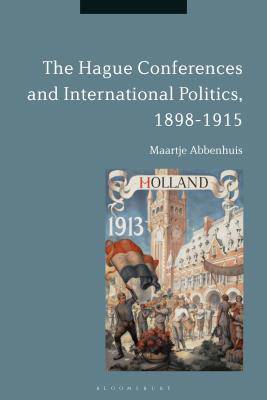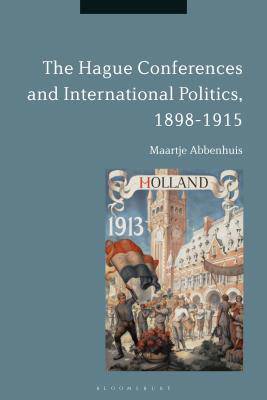
- Afhalen na 1 uur in een winkel met voorraad
- Gratis thuislevering in België vanaf € 30
- Ruim aanbod met 7 miljoen producten
- Afhalen na 1 uur in een winkel met voorraad
- Gratis thuislevering in België vanaf € 30
- Ruim aanbod met 7 miljoen producten
Zoeken
€ 296,95
+ 593 punten
Uitvoering
Omschrijving
Beginning with the extraordinary rescript by Tsar Nicholas II in August 1898 calling the world's governments to a disarmament conference, this book charts the history of the two Hague peace conferences of 1899 and 1907 - and the third conference of 1915 that was never held - using diplomatic correspondence, newspaper reports, contemporary publications and the papers of internationalist organizations and peace activists.
Focusing on the international media frenzy that developed around them, Maartje Abbenhuis provides a new angle on the conferences. Highlighting the conventions that they brought about, she demonstrates how The Hague set the tone for international politics in the years leading up to the First World War, permeating media reports and shaping the views and activities of key organizations such as the inter-parliamentary union, the international council of women and the Institut de droit international (Institute of International Law). Based on extensive archival research in the Netherlands, Great Britain, Switzerland and the United States alongside contemporary publications in a range of languages, this book considers the history of the Hague conferences in a new way, and presents a powerful case for the importance of The Hague conferences in shaping twentieth century international politics.Specificaties
Betrokkenen
- Auteur(s):
- Uitgeverij:
Inhoud
- Aantal bladzijden:
- 304
- Taal:
- Engels
Eigenschappen
- Productcode (EAN):
- 9781350061347
- Verschijningsdatum:
- 18/10/2018
- Uitvoering:
- Hardcover
- Formaat:
- Genaaid
- Afmetingen:
- 152 mm x 236 mm
- Gewicht:
- 249 g

Alleen bij Standaard Boekhandel
+ 593 punten op je klantenkaart van Standaard Boekhandel
Beoordelingen
We publiceren alleen reviews die voldoen aan de voorwaarden voor reviews. Bekijk onze voorwaarden voor reviews.







